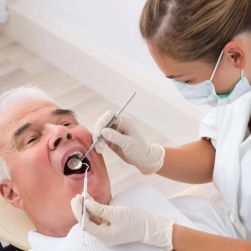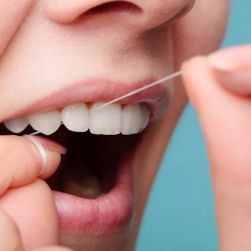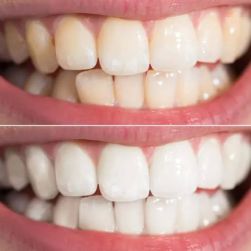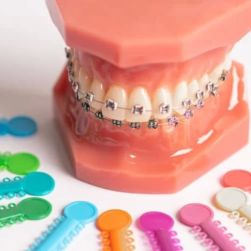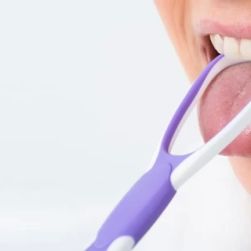Effective Ways to Prevent Long-Term Dental Problems in Kids
As a parent, I often find myself worrying about my child’s teeth. Dental health is crucial, especially during their early years, as these formative years will influence the condition of their teeth well into adulthood. I’ve learned that it’s not just about brushing or visiting the dentist; it’s about building lifelong habits that will prevent long-term dental problems. From preventing cavities to ensuring their teeth develop properly, there’s so much we can do to set them on the right path. In this article, I’ll share some practical and effective ways to keep my child’s teeth healthy and avoid future dental issues.
1. Building a Strong Foundation with Good Oral Hygiene
The most basic yet most effective way to prevent long-term dental problems in kids is to establish a strong oral hygiene routine. Brushing teeth twice a day is essential, but there’s more to it. I always make sure to brush my child’s teeth properly—using a fluoride toothpaste and a soft-bristled toothbrush. This helps remove food particles and plaque, which can lead to cavities if not cleaned properly. Also, don't forget the tongue—bacteria can build up there, contributing to bad breath and other issues.
Flossing is equally important, even for kids. It can be tricky to get them into the habit of flossing, but starting early can help set the foundation for good dental habits as they grow older. Using floss picks can make the process easier and more fun for younger children.
2. Regular Dental Checkups and Cleanings
I can’t stress enough how important it is to take my child to regular dental checkups. While brushing and flossing at home are crucial, professional cleanings are essential for maintaining healthy teeth. Dentists can spot early signs of dental problems, such as cavities or alignment issues, that may not be visible to the naked eye. Catching these problems early can save us a lot of time, money, and pain in the future.
Additionally, regular dental visits help children become familiar with the dental environment, reducing any fear or anxiety they might develop about going to the dentist later on. This is an important step toward lifelong dental health.
3. Diet and Nutrition Play a Key Role
What my child eats significantly impacts their dental health. I’ve learned that sugary foods and drinks are a major culprit when it comes to cavities. It’s important to limit sugary snacks like candies, sodas, and fruit juices, which contribute to plaque buildup and tooth decay. Instead, I encourage my child to eat a balanced diet filled with fruits, vegetables, whole grains, and proteins. These foods provide essential nutrients that support healthy teeth and gums.
In addition to the foods, I also make sure my child drinks plenty of water throughout the day. Water helps rinse away food particles and bacteria, preventing plaque buildup. I also make sure that my child’s diet includes foods rich in calcium and vitamin D to promote strong, healthy teeth and bones.
4. Use of Dental Sealants
Dental sealants are a great preventative measure that I’ve opted for with my child. These are thin, plastic coatings applied to the chewing surfaces of the back teeth. Sealants can prevent cavities by protecting the enamel from bacteria and acids. Many dentists recommend sealants for children, especially those who have molars that are prone to cavities due to their deep grooves. I decided to go ahead with sealants for my child to ensure their teeth stay protected, especially as they enter the stage where they might be eating a lot of sticky foods.
5. Encouraging Healthy Habits for Better Oral Health
Creating healthy habits goes beyond brushing and flossing—it’s about making oral care a part of your child’s routine. One of the most important habits to teach is not to chew on hard objects like pens or ice, as this can lead to cracked teeth. I also encourage my child to avoid nail-biting, as this can cause dental damage over time.
Another important habit is teaching kids to avoid using their teeth as tools for opening packages or bottles. It may seem harmless, but over time, this can lead to fractures in their teeth. The best way to promote these habits is to lead by example—if they see me taking care of my own teeth, they’ll be more likely to take care of theirs.
6. Early Intervention for Misalignment Issues
When my child was around seven years old, I started noticing some signs of dental misalignment. Their teeth weren’t quite growing in straight, and I knew this could lead to more significant issues later on. I decided to consult an orthodontist who recommended early intervention, which helped guide the development of my child’s teeth and jaw. Early braces or spacers can help avoid more complicated orthodontic treatment later, so it’s a good idea to get an orthodontic evaluation early.
Although this process may seem unnecessary at first, I now realize that catching misalignment problems early is much easier and more cost-effective than waiting until the issues become more severe. By taking action early, my child’s smile will be healthier and more aligned, which will also promote better oral health in the future.
7. Limit The Use of Pacifiers and Thumb Sucking
If your child is still using a pacifier or sucking their thumb, it’s important to address it as early as possible. Prolonged pacifier use or thumb sucking can interfere with proper teeth development, leading to misalignment and bite problems. I worked with my child to gradually wean them off the pacifier, and we implemented positive reinforcement techniques to stop thumb sucking. By doing this early, we avoided potential orthodontic issues later down the road.
8. Managing Tooth Sensitivity and Other Concerns
Sometimes, my child experiences tooth sensitivity, especially with cold or hot foods. This is something I’ve paid attention to, as it can be a sign of underlying dental problems. Sensitivity could be caused by enamel erosion, gum disease, or other issues. If you notice that your child is frequently complaining about tooth sensitivity, it’s best to consult a dentist. I found that using a toothpaste designed for sensitive teeth has helped alleviate some discomfort, but professional advice is always the best route.
In conclusion, taking care of your child’s dental health is an ongoing process that requires attention, consistency, and commitment. From building a proper hygiene routine to ensuring a healthy diet and timely dental visits, every step we take now can prevent long-term dental problems in the future. I’m grateful for the knowledge I’ve gained along the way, and I’m committed to helping my child maintain a healthy smile for years to come.

